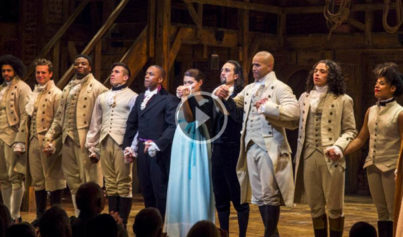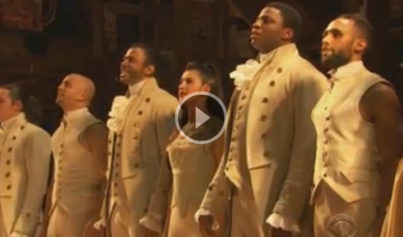Alexander Hamilton has often been remembered by historians as the American Founding Father who had an aversion to the institution of slavery. However, new research paints a different story, citing direct evidence Hamilton was himself a slaveowner.
That evidence was published in a paper titled “‘As Odious and Immoral a Thing’: Alexander Hamilton’s Hidden History as an Enslaver” last month.
Jessie Serfilippi, a historical interpreter at the Schuyler Mansion State Historic Site in Albany, New York, is the author. She disputes the popular historical standing of Hamilton as anti-slavery.
“Not only did Alexander Hamilton enslave people, but his involvement in the institution of slavery was essential to his identity, both personally and professionally,” Serfilippi wrote.
It is a contradiction of what Serfilippi calls an almost universal depiction — most notably reinforced by award-winning musical “Hamilton” by Lin Manuel Miranda — that Hamilton was a “revolutionary manumission abolitionist.”
After examining letters, financial records and a variety of other documents, Serfilippi says the characterization is fraudulent. Entries in Hamilton’s cashbook show Hamilton purchasing slave labor for his home and leasing a “negro boy” to someone, Serfilippi wrote.
She said she went over the documents many times to make sure she was accurate in her findings.
“I went over that thing so many times, I just had to be sure,” Serfilippi told Smithsonian Magazine. “I went into this with the intention of learning about Hamilton’s connection to slavery. Would I find instances of him enslaving people? I did.”
However, Serfilippi’s findings aren’t necessarily groundbreaking. Others have been skeptical about Hamilton’s historical image as anti-slavery — including Hamilton’s own grandson, who wrote that his grandfather definitely owned slaves — and Manuel has been criticized by some for his portrayal of the Founding Father in his broadway musical.
Still Serfilippi said she was shocked at her revelations about Hamilton.
“I didn’t expect to find what I did at all,” Serfilippi said. “Part of me wondered if I was even wasting my time because I thought other historians would have found this already. Some had said he owned slaves but there was never any real proof.”
Serfilippi’s paper drew reactions from various historians on social media.
Harvard law professor and historian Anette Gordon-Reed said the paper was “fascinating” and added, “It just shows that the founders were nearly all implicated in slavery in some way.”
“It’s fitting that we are reckoning with Hamilton’s status as an enslaver at a time that is driving home how vital it is for white Americans to reckon — seriously reckon — with the structural legacies of slavery in America,” Yale history professor Joanne Freeman told The Associated Press in an emailed statement.
Historian Ron Chernow, who published an autobiography on Hamilton in 2004 that also painted Hamilton in the abolitionist light, said Serfilippi’s paper was “a terrific research job that broadens our sense of Hamilton’s involvement in slavery in a number of ways.”
He added the paper was largely one-sided because it didn’t highlight Hamilton’s anti-slavery activities enough.
“I don’t fault Jessie Serfilippi for her tough scrutiny of Hamilton and slavery,” Chernow told The New York times in an emailed statement. “The great figures in our history deserve such rigor. But she omits all information that would contradict her conclusions.”
Hamilton married into the wealthy and powerful Schuler family in 1780 and it is known they were among the largest slaveowners in New York at the time.
However, Serfilippi said her research proves Hamilton was not only guilty by association, but rather guilty by direct involvement.
“It is vital that the myth of Hamilton as ‘the Abolitionist Founding Father’ end,” Serfilippi wrote.


